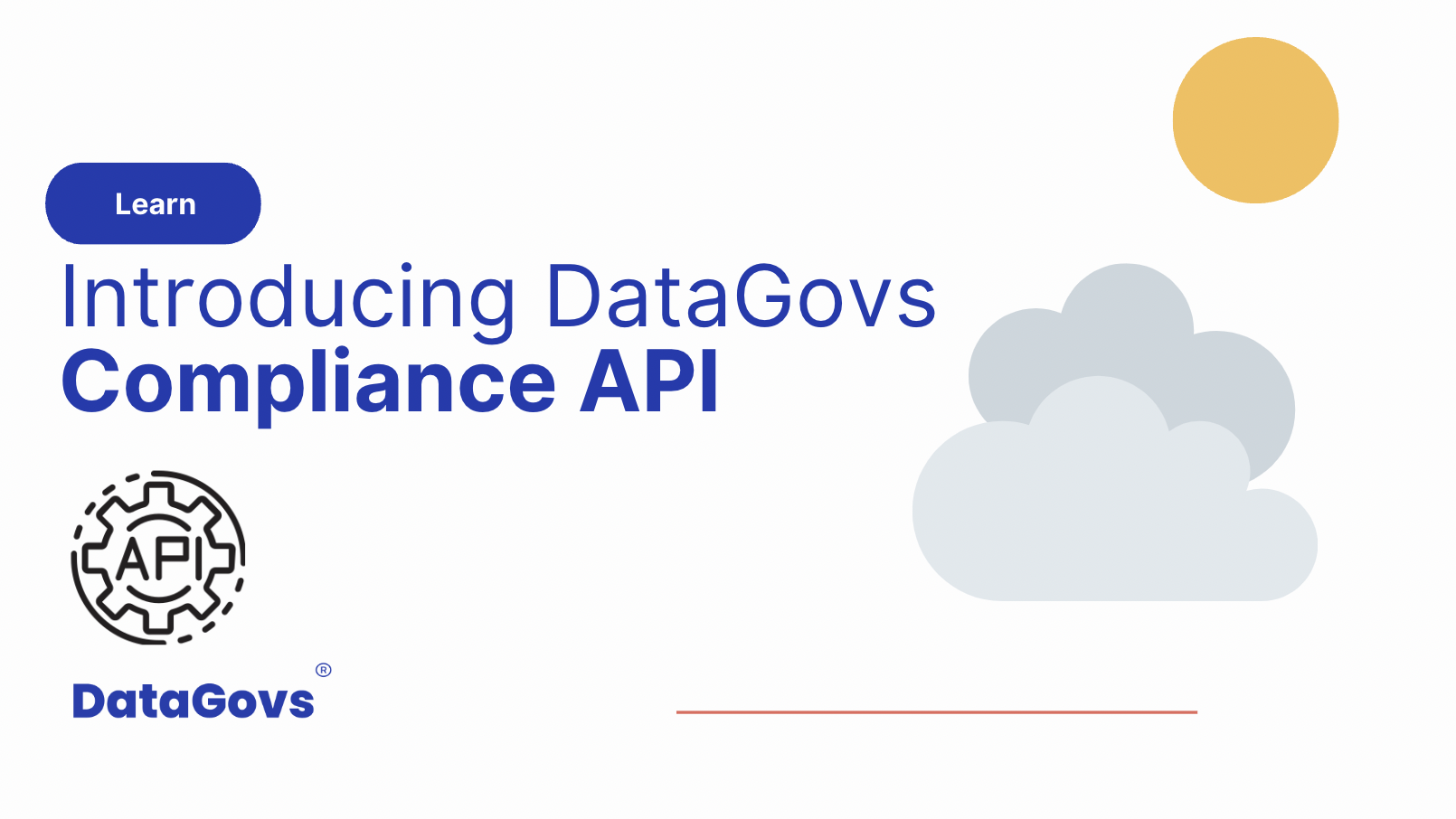
Today we are renaming our core API to meet a need that we find both developers and team face, compliance. Guardrails are important to powerful technology like artificial intelligence and DataGovs Compliance API acts as a guardrail to help developers build apps without having to keep up with compliance in their industry.
Compliance is a broad term. So let’s unpack a little on the type of compliance we service which we consider to be regulatory compliance for industries. DataGovs help developers and data teams integrate a unified API that can serve against any automation model to monitor that apps meet compliance in real time.
What’s a Compliance API?
A compliance API, also known as a regulatory compliance API, is an application programming interface that allows software systems to interact with compliance and regulatory frameworks. It provides developers with a set of tools, functions, and data to automate compliance-related tasks and integrate compliance functionalities into their applications.
- Regulatory Compliance: Businesses and organizations are subject to various regulations and standards imposed by governmental bodies and industry-specific authorities. Compliance APIs enable them to ensure adherence to these regulations by automating compliance processes and integrating them into their existing systems.
- Efficiency and Accuracy: Manual compliance processes can be time-consuming, error-prone, and resource-intensive. Compliance APIs streamline compliance activities by automating tasks such as data verification, risk assessments, reporting, and auditing. This improves efficiency, reduces human errors, and enhances accuracy.
- Integration and Interoperability: Many businesses use multiple software systems and applications across different departments or functions. Compliance APIs facilitate seamless integration between these systems, allowing data sharing, real-time monitoring, and centralized control over compliance processes. This ensures consistency and avoids data silos.
- Real-Time Monitoring and Alerts: Compliance APIs often provide monitoring capabilities, allowing organizations to track compliance-related events, activities, and changes in regulations. They can set up alerts and notifications for potential compliance violations, enabling proactive action and risk mitigation.
- Scalability and Adaptability: Compliance requirements can evolve as new regulations are introduced or existing ones are modified. Compliance APIs provide flexibility and scalability, allowing organizations to easily adapt their systems and processes to comply with changing regulatory landscapes without significant disruptions.
- Audit Trail and Reporting: Compliance APIs often offer features to generate comprehensive audit trails and reports, which can be crucial during regulatory audits or investigations. These APIs enable organizations to maintain detailed records of compliance activities, actions taken, and evidence of adherence to regulations.
Who has Compliance APIs?
Regulatory company compliance APIs are specific to a particular company and its compliance requirements. The above examples showcase this, DataGovs offers a unified compliance API. Compliance APIs simplify and automate the compliance management process, ensuring that organizations can meet their regulatory obligations efficiently, accurately, and at scale. Most platforms offer compliance that meets their tools and service requirements.
- For example, Open AI’s moderation endpoints help flag inputs and outputs to reduce harmful content generation on their platform. Twilio does the same to help end-users and Microsoft also has a similar for it’s type of content generation.
The Difference of DataGovs Compliance API
DataGovs Compliance API leverages artificial intelligence against any model starting with large language learning models (LLMs) and image classification to check for compliance under a unified compliance API. A uniformed compliance API offers a standardized set of methods and endpoints that developers can use to interact with multiple compliance frameworks without needing to learn the specifics.
We do this for industries where frameworks are not universal and in boring industries where it’s often trapped in specifications, paper-based processes, emails, and spreadsheets. This unlocks opportunities because AI adds a new flavor of automation that checks against operations whether manual or automated to assess if it meets industry compliance.
- Unified compliance APIs: These APIs are designed to streamline compliance processes by consolidating data and functionalities from various regulatory sources into a single interface.
- Company compliance APIs: are specific to a particular company and its compliance requirements. These APIs are developed and implemented by the company itself to address its unique compliance needs. Regulatory company compliance APIs typically integrate with internal systems and processes to automate compliance-related tasks.
Conclusion
What are some examples of DataGovs Compliance API in the real world and for developer teams that want to focus on building compliance?
Examples of this can be seen in customers’ use of DataGovs.
- Electric Vehicle Manufacturing – Use DataGovs to make sure data across assets comply across states without having to keep up and develop internally. This saves time, increases ROI, and decreases dependence on outsourced analysis.
- Use Cases
- Fleet Monitoring for Time and Text – Tracking fleets of vehicles is a standard in all industries, but keeping up with fleets report in a specific standard for trucks or light electric vehicles requires a data specification. With DataGovs Compliance API, teams can now do this faster and cheaper without having to outsource analysts.
- Fleet Monitoring for Images – Photos are leveraged usually to monitor issues or complaints for most use cases. Using DataGovs API teams can verify and check for compliance within photos.
- Use Cases
- Packaging Brands – Use DataGovs to integrate across operations ways to stay in compliance with packaging that meets specifications in industries like cannabis and/or pharmaceuticals.
- Packaging Compliance – Brands in highly regulated spaces like Cannabis need to check state laws to make sure they are meeting criteria or face penalties.
- Packaging and Images – Packaging companies leverage photos to ensure packages meet criteria, now they can reduce issues or errors using DataGovs Compliance API to scan.
DataGovs Compliance APIs is a unified approach to leveraging AI and regulatory public data sources to solve boring industry problems. The API adds guardrails so developers and teams can implement apps at scale while catching issues in the process using DataGovs. This helps businesses save time and overheard in outsourcing entry-level analysts’ tasks while ensuring apps meet compliance requirements at scale.